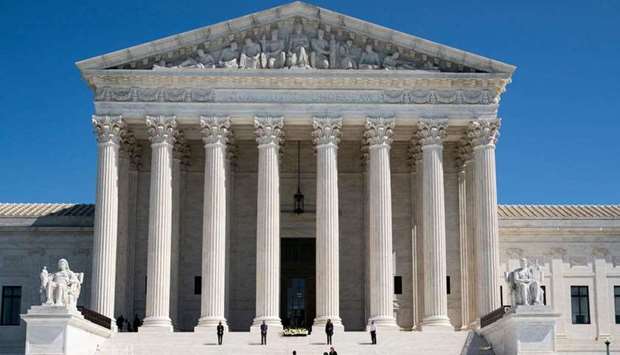The US Supreme Court has rejected a challenge by Republican-led states to former president Barack Obama’s healthcare programme.
In a 7-2 decision, the court upheld the Affordable Care Act – popularly known as Obamacare – maintaining health insurance for tens of millions of Americans.
The ruling by the apex court declared that Texas and other challengers had no legal standing to file their lawsuit seeking to nullify the law.
The decision was authored by liberal Justice Stephen Breyer.
The justices did not decide broader legal questions raised in the case about whether a key Obamacare provision was unconstitutional and, if so, whether the rest of the statute should be struck down.
The provision, called the “individual mandate”, originally required Americans to obtain health insurance or pay a financial penalty.
“A big win for the American people,” Democratic President Joe Biden, whose administration opposed the lawsuit, wrote in a Twitter post, adding that millions of people rely upon the legislation for healthcare coverage while encouraging others to sign up.
The law was Democratic former president Barack Obama’s signature domestic policy achievement.
Biden served as vice-president under Obama.
Breyer wrote that none of the challengers, including Texas and 17 other states and individual plaintiffs, could trace a legal injury to the individual mandate, partly because a Republican-backed tax law signed by former president Donald Trump in 2017 had wiped out the financial penalty.
“Unsurprisingly, the states have not demonstrated that an unenforceable mandate will cause their residents to enrol in valuable benefits programmes that they would otherwise forgo,” Breyer wrote.
After Texas and other states sued, a coalition of 20 states including Democratic-governed California and New York and the Democratic-controlled House of Representatives intervened in the case to try to preserve Obamacare after Trump refused to defend the law.
“For more than a decade, the Affordable Care Act has been the law of the land, providing health coverage and a multitude of protections to tens of millions of Americans across the nation, and today’s decision solidifies those protections for generations to come,” said New York Attorney-General Letitia James, a Democrat.
Conservative Justices Samuel Alito and Neil Gorsuch dissented from the ruling.
Alito wrote that the individual mandate was “clearly unconstitutional” and called the court’s ruling preserving the law an example of “judicial inventiveness”.
The Supreme Court in 2012 and 2015 also fended off previous Republican challenges to Obamacare.
Justice Amy Coney Barrett, a Trump appointee whose confirmation hearing last fall included many questions from Democrats over whether she would vote to strike the law down, was in the majority in the ruling.
Biden’s administration in February urged the Supreme Court to uphold Obamacare, reversing the position taken by the government under Trump, who left office in January.
If Obamacare had been struck down, up to 20mn Americans stood to lose their medical insurance and insurers could have once again refused to cover people with pre-existing medical conditions.
Obamacare expanded the Medicaid state-federal healthcare programme and created marketplaces for private insurance.
House Speaker Nancy Pelosi, a Democrat, called the ruling a “landmark victory for Democrats’ work to defend protections for people with pre-existing conditions against Republicans’ relentless efforts to dismantle them”.
Biden has pledged to expand healthcare access and buttress Obamacare.
The president and other Democrats had criticised Republican efforts to strike down the law at a time when the United States was grappling with a deadly coronavirus (Covid-19) pandemic.
The Supreme Court has a 6-3 conservative majority but the Republican Obamacare challengers still came away disappointed in a ruling in which all three liberal justices were joined by four of the six conservative justices.
Republicans fiercely opposed Obamacare when it was proposed, failed to repeal it when they controlled both chambers of Congress and have been unsuccessful in getting courts to invalidate the law.

(File photo) US Supreme Court
